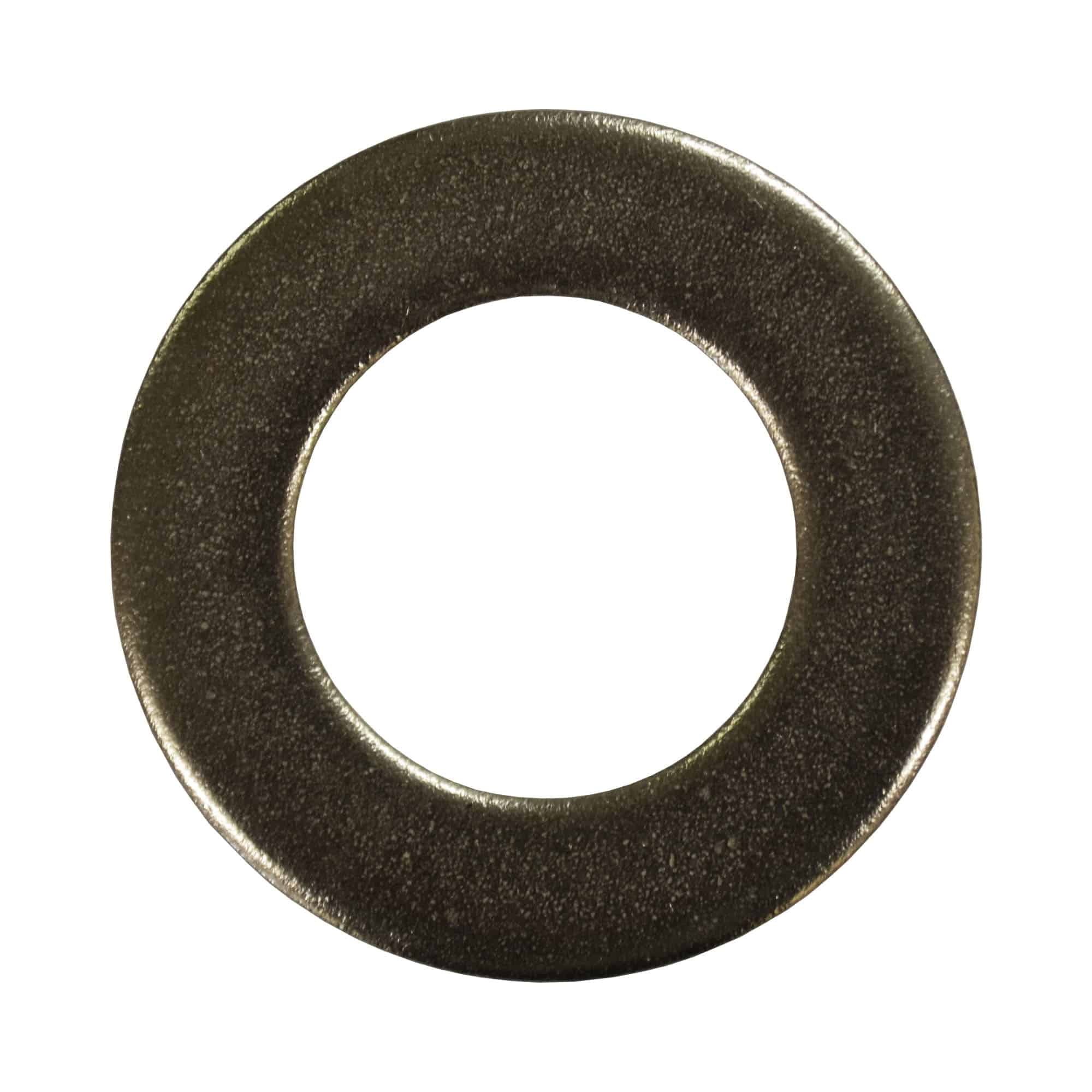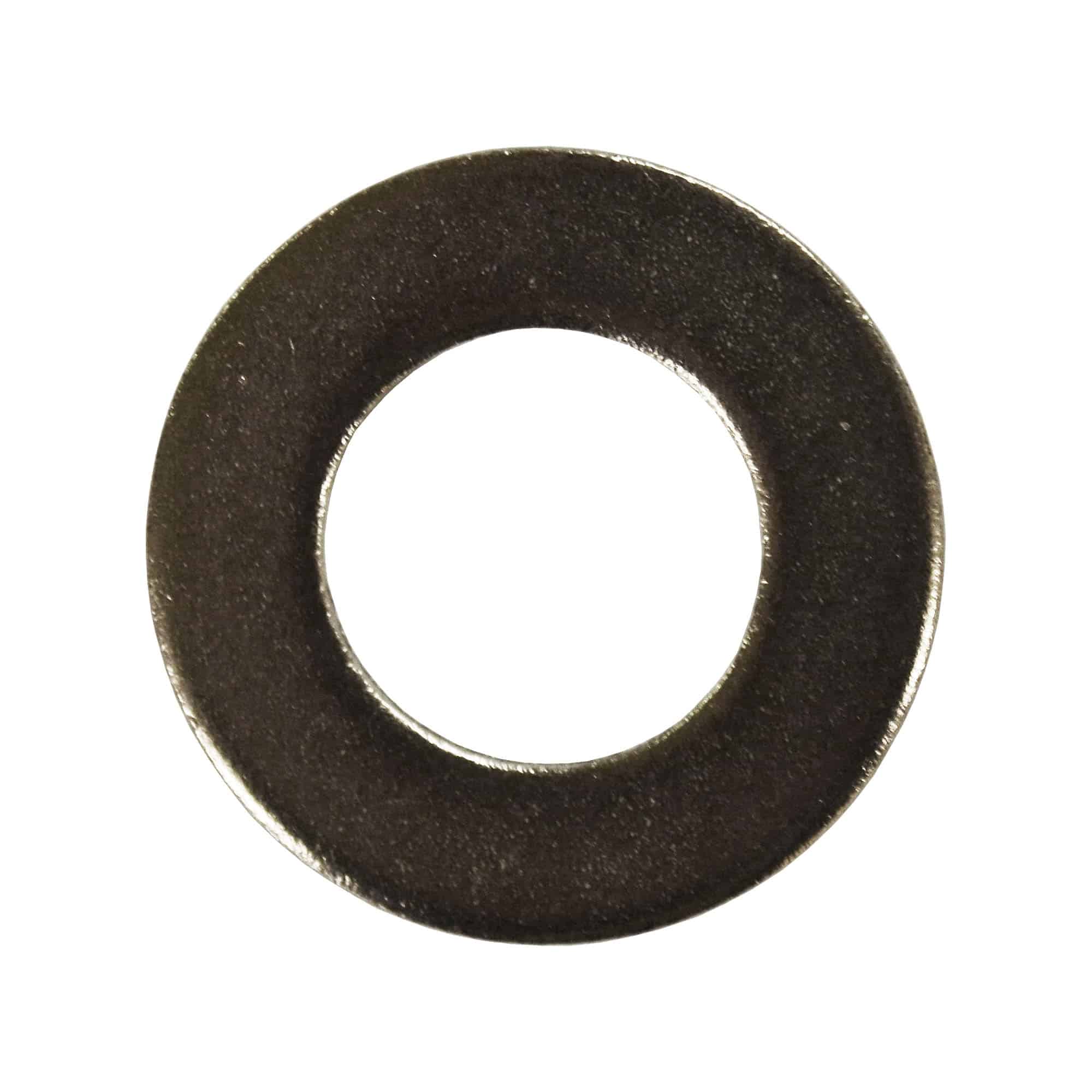- Massive Range
- FREE UK Delivery
- Rapid Dispatch
- Massive Range
- FREE UK Delivery
- Rapid Dispatch
- Massive Range
- FREE UK Delivery
- Rapid Dispatch
£10.99 – £22.99 inc VAT


This website is secured:
£ MULTIBUY SAVINGS – Order 3 For 10% Off
✔ Specialists In Rapid Shipments Of Any Size
✔ FREE UK Delivery Included
✔ Immediate Express Dispatch From Stock
✔ Tracked Delivery with Order Updates
✔ 30-Day Returns Accepted
@ ☏ Larger Pack Quantities Available
Looking for a reliable flat washer that can hold up through all sorts of wear and tear? Look no further than the M18 (19mm) A2 Stainless Steel Form A Flat Washer by Speciality Metals! Made from 304 Grade stainless steel, this washer boasts impressive corrosion resistance and hygiene properties, which makes it ideal for use in a variety of settings. Plus, it’s incredibly versatile and low maintenance, meaning you can trust it to get the job done no matter what. So whether you’re working on a new construction project or simply looking to upgrade your existing systems, the M18 (19mm) A2 Stainless Steel Form A Flat Washer by Speciality Metals is the perfect choice for anyone who wants a secure and dependable washer that will last for years to come.

Top quality stainless steel flat washer fasteners supplied straight from Warrington, UK. These washers are for metric bolts and screws.
With their M18 (19mm) A2 Stainless Steel Form A Flat Washer, Speciality Metals provides unparalleled quality with exceptional hygiene properties, durability, versatility, low maintenance, corrosion resistance and secure fastening. In critical applications, this top-of-the-line flat washer delivers exceptional strength and corrosion resistance due to its 304 grade material. You can rely on this flat washer to deliver unparalleled performance, making it an ideal choice when it comes to hygiene, security and reliability. With Speciality Metals, you can trust that you will get the best in the business, regardless of how challenging your project is.
Form A flat washers that are most used around the world.
Key product details:
Speciality Metals are the best suppliers for you because:
Speciality Metals is a trusted UK based distributor of fasteners, sheet metal, flat bar and round tube. We specialise in rapid delivery to any location around the country. Our team of experienced, friendly staff are at hand at all times to process your order.
Stainless steel washers, including those conforming to Form A specifications, can be quite effective in managing vibrations within bolted assemblies. They serve as an intermediate layer between the surface material and the bolt or nut, which helps distribute the load and dampen vibrations. Stainless steel’s natural hardness and high tensile strength make it resilient against deformation, which can help maintain the integrity of a fastened joint under vibrational stress.
Several factors affect how well a stainless steel washer handles vibrations:
Fit and Tolerance: A washer that fits well with the bolt or screw reduces the likelihood of loosening due to vibrations.
Hardness: Stainless steel’s inherent hardness allows it to maintain its shape better under stress, making it less likely to deform under vibrational forces.
Material Compatibility: It’s essential to ensure that the washer is compatible with the materials of the bolt and the surface it’s fastening to avoid issues like galvanic corrosion, which can weaken the assembly over time.
Surface Roughness: The friction between the washer and the contacting surfaces can help resist rotational forces that may otherwise loosen the fastener, thereby maintaining the assembly’s integrity during vibrations.
Clamping Force: Proper torqueing of the bolt or screw ensures sufficient clamping force, helping the washer to perform effectively under vibrational conditions.
Stainless steel flat washers are generally resistant to rusting due to the presence of chromium, which forms a passive oxide layer on the surface of the steel. This oxide layer acts as a barrier that protects the underlying metal from corrosion. However, stainless steel is not completely impervious to rust.
Several factors can influence the corrosion resistance of stainless steel washers:
Grade of Stainless Steel: Different grades have different corrosion-resistant properties. For example, 304-grade stainless steel is good for many applications but may be susceptible to rust in salty or chlorinated environments. In contrast, 316-grade stainless steel has molybdenum added for better corrosion resistance and is more suited for such conditions.
Environmental Factors: Exposure to harsh conditions such as high humidity, saltwater or corrosive chemicals can compromise the corrosion resistance of stainless steel.
Surface Contaminants: Contaminants like dirt, grease or other metals can interfere with the passive layer, making the steel more susceptible to corrosion.
Mechanical Damage: Scratches or other mechanical damages can breach the protective oxide layer, potentially leading to localised rusting.
Galvanic Corrosion: When stainless steel is in contact with other, less noble metals, it may suffer from galvanic corrosion, which could lead to rusting.
Temperature: High temperatures can also influence corrosion rates. Some grades of stainless steel are better suited for high-temperature environments than others.
Oxygen Availability: The passive layer is maintained by exposure to oxygen. In low-oxygen environments, the protective layer may not be adequately replenished, leading to corrosion.
Removing stains or tarnish from stainless steel 304 washers can usually be done using household or commercial cleaners specifically designed for stainless steel. Here’s a general guide on how you can go about it:
Soapy Water: Begin by washing the washers in warm soapy water to remove dirt and grime. A mild detergent should suffice.
Soft Cloth: Use a soft cloth to scrub the surface gently.
Rinse: Rinse thoroughly with clean water.
Dry: Wipe the washers dry with a clean towel to prevent water spots.
Stainless Steel Cleaner: Use a cleaner specifically made for stainless steel. Make sure to read the instructions and check for compatibility with 304-grade stainless steel.
Non-abrasive Scouring Pad: For more stubborn stains, a non-abrasive scouring pad can be used in conjunction with the cleaner. Always scrub in the direction of the metal grain to avoid scratching the surface.
Rinse and Dry: Just like with light stains, rinse thoroughly with clean water and dry with a clean towel.
Acidic Solution: A solution of one part vinegar to three parts water can often remove light rust stains.
Application: Apply the vinegar solution with a soft cloth or immerse the washers in it for several minutes.
Rinse and Dry: Rinse thoroughly and dry immediately.
Always Test: Before applying any cleaner or solution, test it on a small, inconspicuous area to ensure it doesn’t harm the surface.
Avoid Chlorides: Do not use cleaners that contain chlorides, as they can damage the protective layer on the stainless steel.
Avoid Abrasives: Do not use steel wool, steel brushes or abrasive sponge pads as they can scratch the surface and remove the passive layer.
Follow Manufacturer Guidelines: If you have manufacturer instructions specific to the washers, follow those to avoid voiding any warranties or causing damage.
The lifespan of stainless steel flat washers can vary significantly depending on a number of factors including the type of stainless steel, the environment in which they are used and the mechanical stresses to which they are subjected. In general, however, stainless steel washers are known for their durability and long-lasting nature, especially when compared to washers made of less robust materials like carbon steel or aluminum.
Type of Stainless Steel: Different grades have different corrosion-resistant properties. For example, 316-grade stainless steel generally has a longer lifespan in corrosive environments compared to 304-grade.
Environmental Conditions: Exposure to harsh environmental factors like saltwater, chemicals or high temperatures can reduce the lifespan of stainless steel washers.
Mechanical Stress: Heavy loads, vibrations or repeated cycles of tightening and loosening can also affect the lifespan.
Maintenance: Periodic inspections and maintenance can help to extend the lifespan by identifying and rectifying issues before they become critical.
Quality of Installation: Proper installation, including the correct torque and alignment, can also have an impact on longevity.
Material Compatibility: Galvanic corrosion can occur when stainless steel is in contact with dissimilar metals, potentially reducing the lifespan of the washer.
Check out our blogs discussing Stainless Steel Form A Washers. It will prove a useful read to help you to make an informed decision on which material would work best for you.
We are also very proud of our ever expanding YouTube channel.
Our goal for our blogs, videos and help guides is to answer as many questions as possible to help to explain the possibilities of mesh to our customers. Contact us today if you have any questions at all. We are always really keen to help in any way that we can.
We are also very proud of our highly popular eBay store, check us out there too.
Thank you for checking out our product.
£10.99 – £22.99 inc VAT
£11.99 – £15.99 inc VAT

£10.99 – £22.99 inc VAT

£11.99 – £15.99 inc VAT
Speciality Metals
Unit 1, Farrell Street, Warrington,
Cheshire, WA1 2WW, United Kingdom
Quick Links
Payment Options
